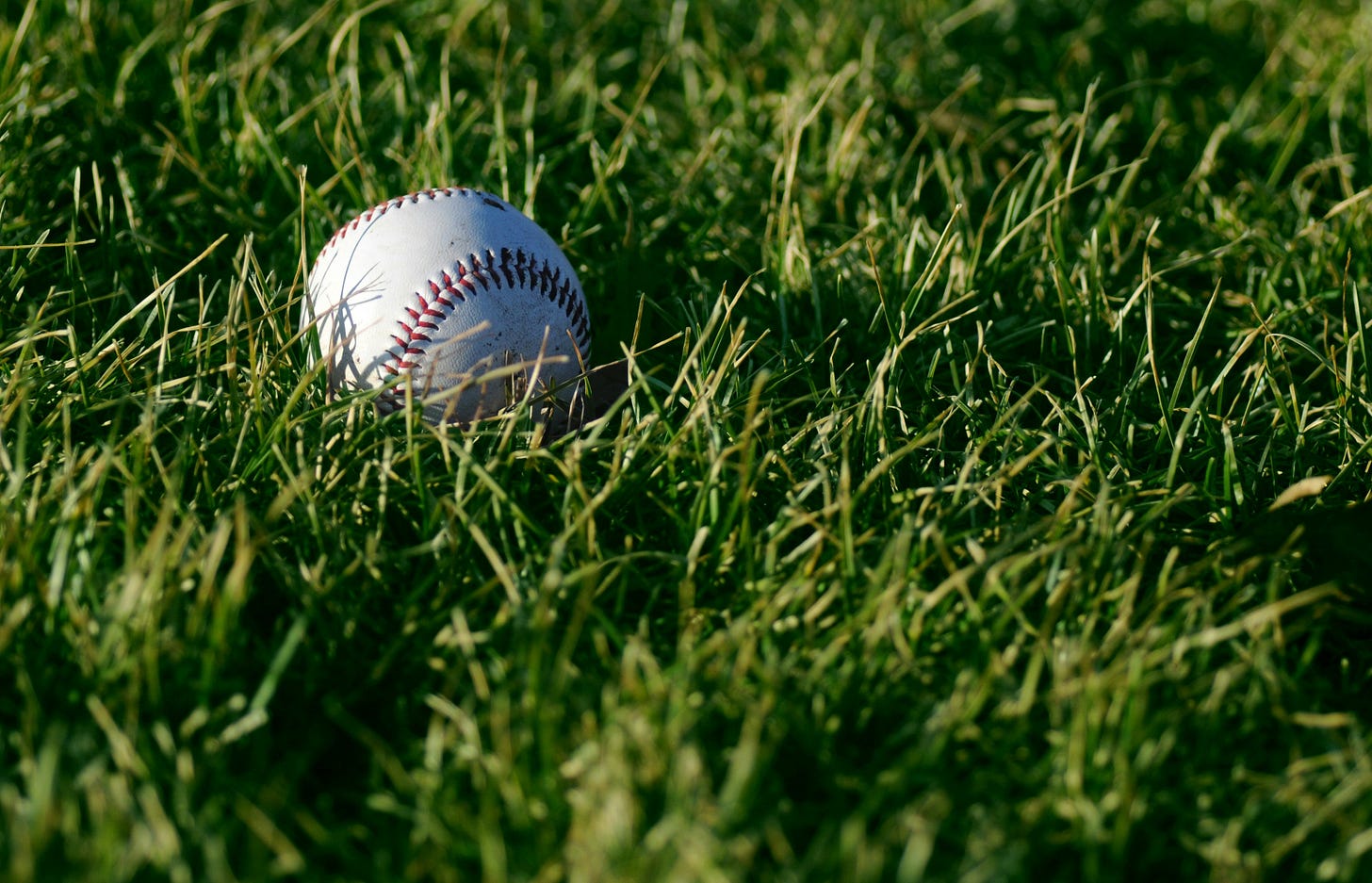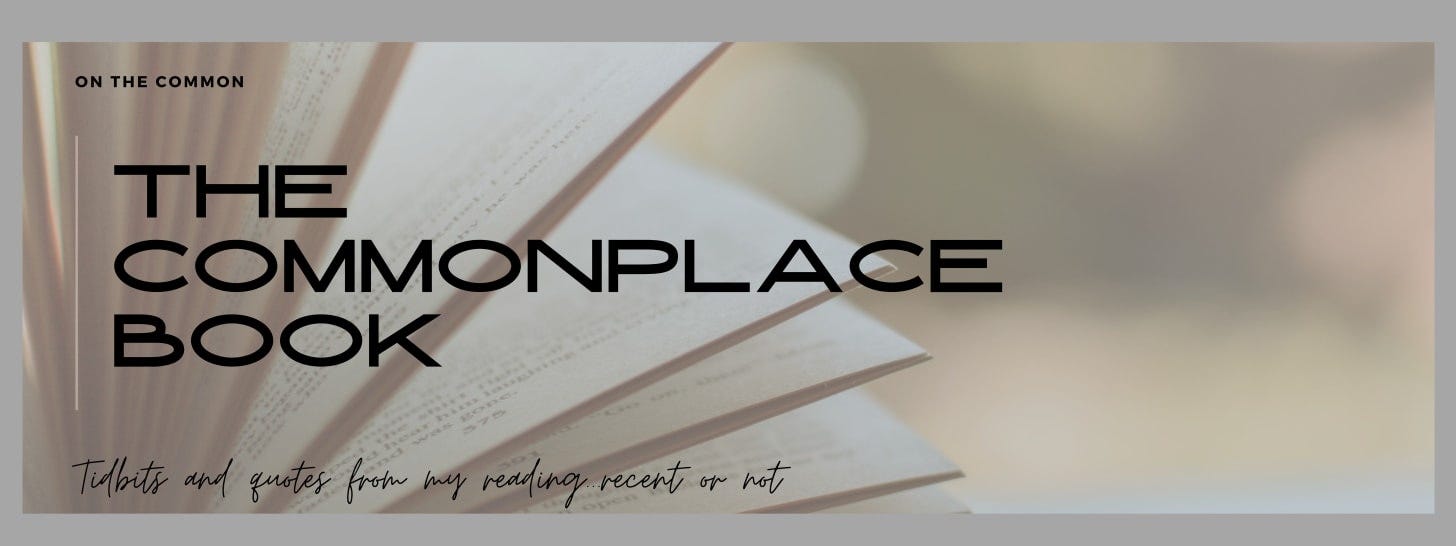Hi there,
How is everyone feeling about the attempt at a return of extinct species? No matter how cute those wolf pups are, this development resembles a dinosaur movie I saw once. Time to bring this back:
I won’t be appearing in your inbox next week, except for my annual poem. If you follow me on Instagram, I plan to repost the Holy Week fine art series I did back in 2020. You can find me there.
The Part Where There’s an Essay: Babe Ruth Goes Hunting
(In honor of baseball once again being with us, here’s a story I originally posted in 2021. While some artistic license has been taken here, please be assured that the bare outline of this story was a definitive—and, I was assured, true— part of my family’s history. Sam is my maternal grandfather.)
One Friday night in November, a shiny black car with New York plates pulled up in front of the Big House on Dawson Road. Four men got out. They were wearing expensive suits topped by long wool coats, and each sported a fedora. As the cases were pulled out and brought up the narrow cement steps into the house, the guests were welcomed inside by the hostess, Annie Armstrong Dawson. She briskly introduced herself to each of the newcomers. “Hello—come in— there’s coffee on the stove. When you’re settled, come downstairs for some pie.” Annie’s Belfast accent was charming, but the men understood that this invitation was more of an instruction.

Annie was used to having her upstairs rooms full of guests during the weekends of hunting season. Every year the second floor of the Big House was occupied with men from all over the Northeast, come to hunt in the acres of wooded hills that surrounded Deer View Farms. The days took on a familiar rhythm: coffee in the early morning hours, a big hot breakfast after the sun rose, quiet afternoons, and then Jack Daniels, cards and cigarettes in the evenings.
After the evening milking, Annie’s son Sam washed up and made his way up the hill and into the kitchen at the Big House. He wanted to meet the men he would take out hunting that weekend. He knew one of the faces immediately from the morning paper. Even to those who weren’t baseball fans—Sam wasn’t—Babe Ruth was a household name and face. Not wanting to embarrass his guest, Sam made no sign of special recognition. He exchanged names with all of the men, shook hands politely, and told his usual few stories about the successes and failures of hunters on the farm. The men laughed along with him easily. After a few instructions for the early morning meetup, he walked the short distance back to his own small home next door.
That Saturday’s hunting expedition was a successful one for everyone but the Babe. Sam watched him spew his frustration after a few narrow misses. Much like he might have at home plate in the Bronx, Babe ground his teeth and spat. Eventually, the band of hunters headed back to the house for breakfast and a nap. They gathered that evening around the farmhouse table in the kitchen of the Big House, drinking too much and telling raucous stories. Annie tried to stay ahead of them, washing glasses and emptying ashtrays.
When the sun rose after hours of hunting the next morning, the Babe still found himself without a trophy. He walked empty-handed back to the house, squinting into the white sunrise and muttering. Even their host, Sam, had bagged a beautiful buck, though the rack was nothing to speak of—it had a broken brow tine on the right side. Still, it would feed his own small family through much of the winter, and Sam was thankful.
After a few hours, the group of men had packed up their belongings and made their way to the car. Sam emerged from the barn in his coveralls, wiping his hands on a towel. He smiled, shook hands, and invited them to come again. The car was laden down with the deer from the weekend, its shiny paint coated with a layer of dust and hair. They drove off and left the farm quiet again.
On Monday morning, Annie performed her morning duties as usual, tending the farm cats and brewing the coffee for the morning break from chores. She fetched the morning paper from the box at the end of the driveway. Back in the kitchen, she poured herself a cup of coffee from the percolator and settled into her usual spot at the yellow table. She smoothed out the front page of The New York Daily News and saw Babe Ruth’s grinning face looking back at her. Next to the bold text “Babe Bags a Beaut,” Ruth crouched triumphantly next to a buck with a broken brow tine on the right side.
For the Anglophiles
Here’s another somebody-found-something entry: Medieval ring found by detectorist could make £18k.
"This form of Medieval ring, with a principal cabochon stone - usually a sapphire - surrounded by smaller collet set satellite stones (garnets or rubies, and emeralds), can be securely dated to the late 12th or early 13th Century, and is associated with the bishopric."
Reads & Listens of the Week
If you’re interested in reading more poetry,
, a poet himself, has a nice series going called Close and Slow. “In many ways, poetry has always yielded what the modern emphasis on ‘mindfulness’ seeks to do in our busy modern society - it slows us down, it invites us to listen, to notice, to experience, without any rush or sense of mere functionality.” Here’s one entry, on the poem “Straws in the Wind.”Bullet Holes in the Stained Glass. Andrew Osenga is becoming a regular feature here, but again he’s written us something noteworthy, retelling the circumstances around the latest Anchor Hymns album. “We grieve, but not as those without hope.”
And lastly, Jane Austen’s Novels are Darker than You Think. “.…properly directed hatred as much as wealth allows the Darcys to form a virtuous society at Pemberley following their marriage. They exclude the George Wickhams of the world and keep the Lady Catherines in check. Eager, easygoing Charles and Jane Bingley are nearly as rich but lack moral stature because they haven’t learned to hate.” (I'm not sure I’d call this hatred, but this is an interesting thought!)
Yes, evil often seems to surpass good. But then, in spite of us, and without our permission, there comes at last an end to the bitter frosts. One morning the wind turns, and there is a thaw. And so I must still have hope. Vincent van Gogh





